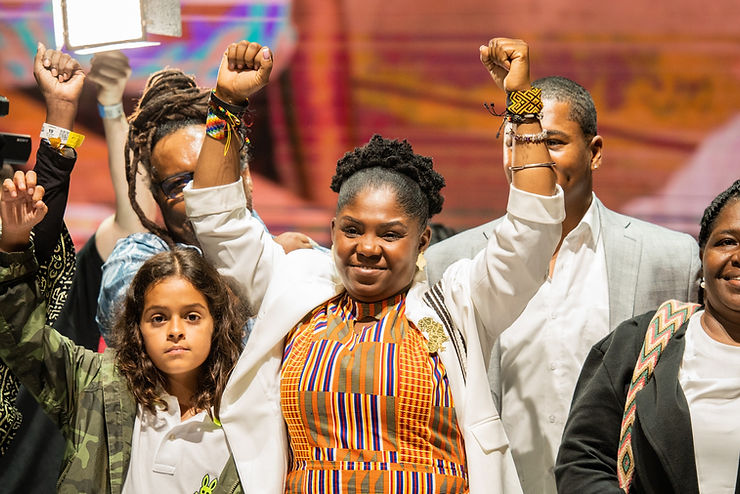By: Richard Huang
Francia Márquez, Colombia’s first Black vice president, is wearing a shirt that comes from a young designer who is the spotlight of an Afro-Colombian fashion explosion.
Esteban Sinisterra Paz, a 23-year-old university student, has no formal design training nor certificates, but he has the determination to represent the culture of Afro-Colombians by designing unique clothing.
“Decolonization of the human being” is what he wants to achieve, he said, and to show the world the vast spectrum of “the elegance of identity.”
Sinisterra is now mainly designing for Francia Márquez, an environmental activist, lawyer, and the first Black vice president of Colombia.
Ms. Márquez’s political successes are inspiring to many. Borned in the deep poverty of Colombia, she emerges as a figure representing the dark side of Colombia — millions of poor, Black and Indigenous citizens.
She stands out from many political figures in Colombia is also because of her view on the country’s political aesthetic. She refuses to wear those conventional shirts and suits, but intentionally favors attire that represents her culture and identity as an Afro-Colombian. She calls this a form of rebellion.
Similar to Ms. Márquez’s early life, the young designer Mr. Sinisterra’s family was forcibly displaced when he was 5, a tiny part of the turmoil in the country. Sinisterra wanted to study fashion but was hindered by his father’s stereotypical view that fashion is only for girls. However, after entering college, he continues his dream by designing more elaborate ornaments for a number of customers, and now he has become the man behind Ms. Márquez’s wardrobe.
In an interview, Ms. Márquez credited Sinisterra’s importance to her political identity. “He’s showing young people that they can succeed, using their talent, they can get ahead,” she said.
Today, wearing a distinct cultural shirt is becoming a popularized political act, but it cannot change the original purpose of this form of dressing — the pride of one’s unique cultural identity.
“A big part of the plan was to make us feel ashamed of who we are, of our colors, of our culture, of our features,” said Lia Samantha Lozano, 41, who had dressed her hip-hop and reggae band in African textiles more than ten year ago. “To wear this every day, not as ‘fashion,’ not to dress up for a special occasion, but as a way of life, as something you want to communicate every day — yes, it is political. And, yes, it is a symbol of resistance.”
Source: https://www.nytimes.com/2022/08/06/world/americas/francia-marquez-colombia-vp-style.html











